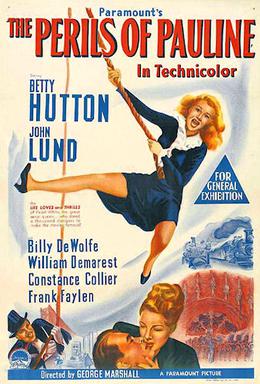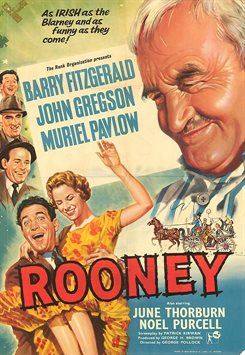Related Research Articles

Laurel and Hardy were a British-American comedy team during the early Classical Hollywood era of American cinema, consisting of Englishman Stan Laurel (1890–1965) and American Oliver Hardy (1892–1957). Starting their career as a duo in the silent film era, they later successfully transitioned to "talkies". From the late 1920s to the mid-1950s, they were internationally famous for their slapstick comedy, with Laurel playing the clumsy, childlike friend to Hardy's pompous bully. Their signature theme song, known as "The Cuckoo Song", "Ku-Ku", or "The Dance of the Cuckoos" was heard over their films' opening credits, and became as emblematic of them as their bowler hats.
The year 1915 in film involved some significant events.
The year 1914 in film involved some significant events, including the debut of Cecil B. DeMille as a director.

Harold Clayton Lloyd Sr. was an American actor, comedian, and stunt performer who appeared in many silent comedy films.

Theda Bara was an American silent film and stage actress. Bara was one of the more popular actresses of the silent era and one of cinema's early sex symbols. Her femme fatale roles earned her the nickname "The Vamp", later fueling the rising popularity in "vamp" roles based in exoticism and sexual domination.

Phyllis Virginia "Bebe" Daniels was an American actress, singer, dancer, writer, and producer.

Pearl Fay White was an American stage and film actress. She began her career on the stage at age 6, and later moved on to silent films appearing in a number of popular serials.
Pauline Perpetua Sheen is an English actress. She began her career with roles on various television series, before fronting her own comedy sketch show, Pauline's Quirkes, in 1976. She later starred as Vicky Smith on the BBC drama series Angels (1982–1983), and achieved fame with her portrayal of Sharon Theodopolopodous on the long-running sitcom Birds of a Feather, for which she won a British Comedy Award and was nominated on three occasions for a National Television Award. In 1997, she was nominated for the BAFTA Award for Best Actress for her role in the BBC miniseries The Sculptress. Between 2010 and 2012, Quirke played Hazel Rhodes on the ITV soap opera Emmerdale.

Henry William George Lupino professionally Lupino Lane, was an English actor and theatre manager, and a member of the famous Lupino family, which eventually included his niece, the screenwriter/director/actress Ida Lupino. Lane started out as a child performer, known as 'Little Nipper', and went on to appear in a wide range of theatrical, music hall and film performances. Increasingly celebrated for his silent comedy short subjects, he is best known in the United Kingdom for playing Bill Snibson in the play and film Me and My Girl, which popularized the song and dance routine "The Lambeth Walk".

The Perils of Pauline is a 1947 American Technicolor musical comedy film directed by George Marshall and starring Betty Hutton, John Lund and William Demarest. It was produced and released by Paramount Pictures. The film is a fictionalized Hollywood account of silent film star Pearl White's rise to fame, starring Hutton as White.
Walter Forde was a British actor, screenwriter and director. Born in Lambeth, South London in 1898, he directed over fifty films between 1919 from the silent era through to 1949 in the sound era. He died in Los Angeles, California in 1984.

The Ringer is a 1931 British crime film directed by Walter Forde and starring Patric Curwen, Esmond Knight, John Longden and Carol Goodner. Scotland Yard detectives hunt for a dangerous criminal who has recently returned to England. The film was based on the 1925 Edgar Wallace story The Gaunt Stranger, which is the basis for his play The Ringer. Forde remade the same story in 1938 as The Gaunt Stranger. There was also a silent film of The Ringer in 1928, and a 1952 version starring Donald Wolfit.

The Peterville Diamond is a 1942 British comedy film directed by Walter Forde and starring Anne Crawford, Donald Stewart and Renée Houston. It is also known by the alternative title Jewel Robbery. - from the 1931 play of the same title; previously filmed in Hollywood in 1932.

Rooney is a 1958 British comedy film directed by George Pollock and starring John Gregson, Muriel Pavlow and Barry Fitzgerald. The screenplay was by Patrick Kirwan based on the 1957 novel of the same name by Catherine Cookson.
Pauline Peters was a Welsh actress in dozens of silent films.
Wait and See is a 1928 British silent comedy film directed by Walter Forde and starring Frank Stanmore, Pauline Johnson and Sam Livesey.

What Next? is a 1928 British silent comedy film directed by Walter Forde and starring Forde, Pauline Johnson and Frank Stanmore. It was made at Nettlefold Studios in Walton-on-Thames. There is a copy held at the BFI archive.
Would You Believe It! is a 1929 British silent comedy film directed by Walter Forde and starring Forde, Pauline Johnson and Arthur Stratton. It was made at the Nettlefold Studios in Walton-on-Thames and released as a supporting feature. Due to the general public's apathy toward silent films, it was quickly released in a sound version that features a synchronized musical score with sound effects.
You'd Be Surprised! is a 1930 British musical comedy film directed by Walter Forde and starring Forde, Joy Windsor and Frank Stanmore. The film was shot at the Nettlefold Studios in Walton. It was made during the transition to sound film. Originally silent, it had synchronised songs and music added. A silent version was also released to cater to cinemas that hadn't converted to sound yet.

Hallroom Boys, also sometimes written as Hall-Room Boys or Hall Room Boys, was a comic strip, vaudeville act, and a comedy short film series that included various actors, including Edward Flanagan, Neely Edwards, and Sid Smith. Pathescope reissued the films in Europe.
References
- ↑ Moules, Patrick (28 July 2020). The 9.5mm Vintage Film Encyclopaedia. Troubador Publishing Ltd. p. 356. ISBN 978-1-83859-269-1 . Retrieved 17 January 2025.
- ↑ Pathéscope Film Catalogue 9.5mm (First ed.). Cricklewood: London, Pathéscope Ltd. 1941. p. 13. Retrieved 17 January 2025.
- ↑ Montgomery, John (26 April 2022). Comedy Films 1894–1954. Routledge. ISBN 978-1-000-57919-2.